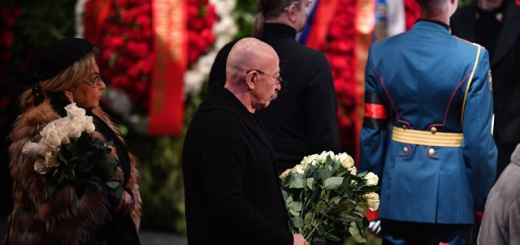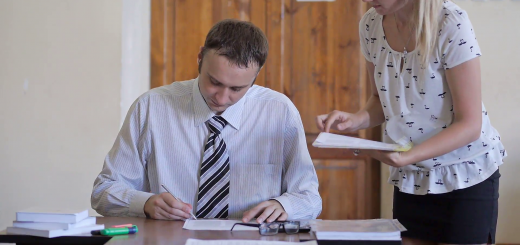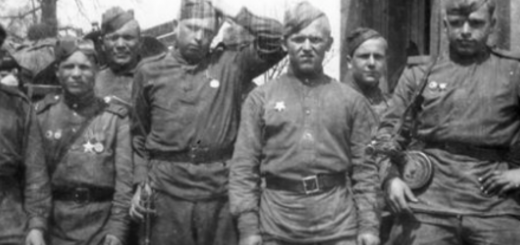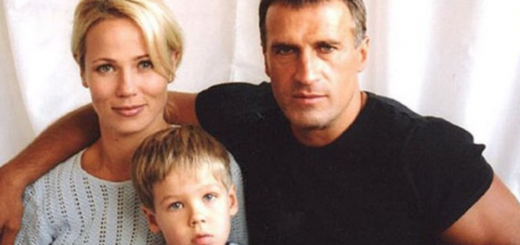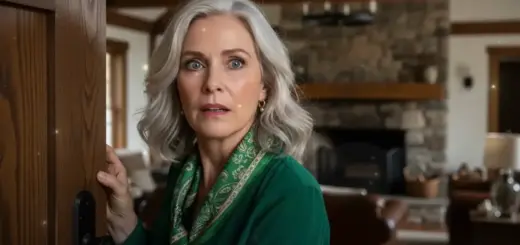«Go find another table. This one’s for family, not adopted girls.» My sister Victoria’s voice rang through the elegant dining room of Belmont’s, one of Seattle’s most exclusive restaurants. Laughter erupted around the table. My parents, my brother, Kenneth, and Victoria’s husband all joined in like it was the funniest joke they’d ever heard. I stood there holding my clutch, my face burning with humiliation as other diners turned to stare.

The chandeliers sparkled overhead, casting warm light on the white tablecloths and crystal glasses, but I felt cold inside. My name is Rachel, and I’m 27 years old. I’ve lived with this family for 22 years, ever since they adopted me when I was 5. Twenty-two years of being reminded I didn’t belong, that I was different, that I was less than.
The only person who ever made me feel like I mattered was Grandma Dorothy, my adoptive mother’s mother, who was sitting at the far end of the table with a strange expression on her face. «Victoria, that’s enough,» I said quietly, trying to maintain some dignity.
«Oh, don’t be so sensitive,» my mother, Patricia, chimed in, waving her manicured hand dismissively. «We’re just teasing. You know how Victoria is.»
I knew exactly how Victoria was. At 32, she’d perfected the art of making me feel small while maintaining the facade of family unity. Growing up, she got the best bedroom, the newest clothes, and the expensive college education. I got hand-me-downs and community college. She was praised for mediocre achievements; I was criticized for excellence.
«Sit down, Rachel,» my father, Gregory, ordered. «You’re making a scene.»
I sat, swallowing the protest rising in my throat. This dinner was supposed to celebrate Victoria’s latest business deal, a real estate investment that my parents had helped finance. They were always helping Victoria. When I’d asked for a loan to start my graphic design business three years ago, they’d laughed and told me to be realistic.
The evening dragged on with conversation flowing around me like I wasn’t there. Victoria bragged about her new Mercedes. Kenneth discussed his promotion at the bank. My parents beamed with pride, asking questions and offering congratulations.
When I tried to mention the major client I’d just landed, a contract worth $50,000, my mother cut me off. «That’s nice, dear. Kenneth, tell us more about your bonus.» By the time dessert arrived, I’d retreated into myself, the familiar numbness settling over me. This was my role in the family: the outsider, the charity case, the one they kept around to feel good about themselves.
Then the waiter approached with the check. My stomach dropped as he placed the leather folder directly in front of me. I stared at it, confused. «What’s this?» I asked.
Victoria’s laugh was sharp and bright. «Oh, didn’t we mention? You’re paying tonight. Consider it your contribution to the family, since you’re always taking and never giving.»
«Taking?» The word came out strangled. «I’ve never asked you for anything.»
«The roof over your head growing up? The food? The clothes?» Patricia ticked off items on her fingers. «We gave you everything, Rachel. The least you can do is buy us dinner.»
My hands trembled as I opened the folder. The total made my vision blur: $3,270. They’d ordered the most expensive wines, multiple appetizers, premium steaks, and lobster tails. Kenneth had ordered three desserts just because he could.
«I can’t afford this,» I whispered.
«Of course you can,» Victoria said sweetly. «You just told us about your big client. Fifty thousand dollars, wasn’t it? This is nothing to you now.»
The truth was that the $50,000 was spread over six months of work, and most of it was already allocated to business expenses, rent, and paying off the student loans my family had refused to help with. This single dinner would wipe out my savings, but I couldn’t make another scene. I couldn’t give them more ammunition to call me ungrateful, difficult, or dramatic. With shaking hands, I pulled out my credit card and placed it in the folder.
The waiter whisked it away, and I forced myself to smile, to sip my water, to pretend this wasn’t devastating me. Victoria was already talking about their upcoming vacation to Tuscany; my parents were planning to join them. Nobody asked if I wanted to come. They never did.
When the waiter returned with my card and receipt, I signed with numb fingers. Three thousand, two hundred and seventy dollars for the privilege of being humiliated by people who were supposed to love me.
«Well, that was lovely,» Patricia said, dabbing her lips with her napkin. «Same time next month?»
Next month. They expected this to become a regular thing. I opened my mouth to protest, to finally say enough was enough, when a voice cut through the chatter. «Just a moment, please.»
Everyone fell silent. Grandma Dorothy, who’d been quiet all evening, was standing at her end of the table. At 78, she still commanded attention, her silver hair perfectly styled, her posture straight as a rod. Something in her expression made my chest tighten.
The restaurant seemed to hold its breath. Grandma Dorothy had always been different from the rest of the family. While my parents and siblings treated me like an obligation, she’d been the one who showed up at my school plays, remembered my birthday, and asked about my dreams. She was also the wealthiest person I’d ever known, a self-made billionaire who’d built a pharmaceutical empire from nothing.
But lately, she’d been quieter. Watching. I’d noticed her observing family gatherings with an intensity that made me wonder what she was thinking.
«Mother, what is it?» Patricia asked, irritation creeping into her voice. «We were just about to leave.»
«Sit down, all of you.» Grandma Dorothy’s voice carried an authority that made even my father straighten in his chair. «I have something to say, and you’re going to listen.»
Victoria rolled her eyes but stayed seated. Kenneth checked his phone under the table. My parents exchanged confused glances. Grandma Dorothy’s gaze swept across each of them before landing on me. Something flickered in her eyes—sadness, maybe, or disappointment in everyone else.
«I’ve been watching this family for years,» she began, her voice steady but cold. «Watching how you treat Rachel, how you’ve always treated her.»
«Mother, really?» Patricia protested. «This isn’t the time.»
«Be quiet.» The command was so sharp that my mother actually obeyed. «I’m seventy-eight years old, and I’ve spent the past few months thinking about my legacy. About where my money should go when I’m gone.»
The table went very still. My father’s fork clinked against his plate as he set it down. Victoria’s smug expression faltered.
«We all know how this works,» Grandma Dorothy continued. «The bulk of my estate goes to Patricia, then is distributed among the grandchildren. That’s what the current will says.»
I watched Victoria’s face light up with greed. She’d been counting on that inheritance for years, planning elaborate purchases, and making investments based on money she didn’t even have yet.
«But I’ve had my lawyer draw up a new will.» Grandma Dorothy pulled an envelope from her purse. «Signed and notarized yesterday.»
The silence was suffocating. «You can’t be serious,» Kenneth said. «You’re changing your will? Because of what? A stupid joke?»
«A joke?» Grandma Dorothy’s laugh was bitter. «I’ve watched you all mock and belittle Rachel for over two decades. I’ve watched you exclude her, humiliate her, treat her like she’s less than human. And tonight? You made her pay for your excess while you laughed about it.»
«We were just having fun,» Victoria protested, but her voice wavered.
«Fun?» Grandma Dorothy repeated the word like it tasted foul. «You think cruelty is fun? You think making someone feel worthless is entertainment?» My heart was pounding so hard I thought everyone could hear it.
Grandma Dorothy walked slowly around the table until she stood beside me. Her hand rested gently on my shoulder. «Rachel is the only one in this family who’s shown true character,» she said. «She’s worked for everything she has. Built a business from nothing with no help from any of you. She’s kind, talented, and resilient, despite your best efforts to break her spirit.»
«Mother, you’re being dramatic,» Gregory said, but his voice lacked conviction.
«Am I?» Grandma Dorothy’s eyebrows rose. «Patricia, when was the last time you asked Rachel about her life? Really asked, and actually listened to the answer?» My mother’s mouth opened and closed. «Kenneth, have you ever congratulated your sister on her accomplishments? Ever acknowledged her success?» My brother stared at his plate. «Victoria, have you spent even one day treating Rachel like family instead of a servant?»



















